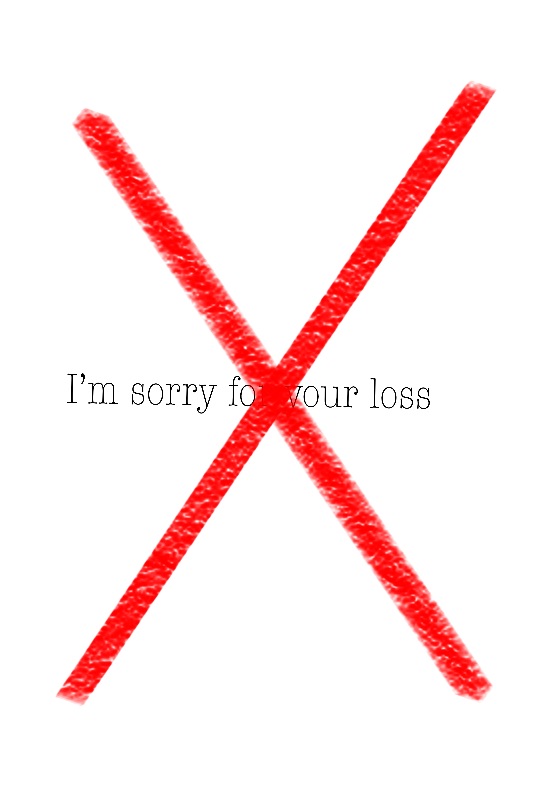No need for pity
Endless condolences for a loved one’s passing are unnecessary and exhausting
October 13, 2022
This summer, I was writing for my hometown’s local magazine. One of the last assignments the editor had me do was interview a few of the town’s residents who were over 90. When I went to interview one of the residents, the local museum curator insisted on tagging along to make introductions, so she came too. I was interviewing the extremely talkative, 90-year-old farmer about his antique tractor collection when the curator, for no reason whatsoever, pointed to me and said to the man, “Her parents passed away, it is so sad.”
I was more annoyed by the remark than surprised.
How did I respond? Internal eye roll and a segway into the farmer’s days as a Korean War army vet. Anything to not hear another “I am so sorry for your loss.”

Long story short for those who have questions: parents were old. Parents got sick. Dad passed when I was 17 and Mom passed away when I was 19. Both were not a shock to me, I was very much aware of my parent’s health situation, I knew it would happen when I was still relatively young.
Even though I was prepared for both of their passings, I was not prepared for the wave of questions and condolences that have occurred ever since. The condolences from nosey neighbors and teachers were not terrible when my dad died, mainly because they were more directed at my mom and not me.
But when my mom died a year ago, that was entirely different. When I returned home for Christmas break last year, I was greeted by neighbors who I had never talked to before in my life. When my mom passed, I had only told one neighbor, and that was because I wanted them to pick up my mail. Whether I liked it or not, word got around the neighborhood that now both of my parents had passed, and people were going to come to my door with questions:
How did she die? Where will you live? Are you going to sell your house? What are you going to do with all that furniture? Who is going to watch your house when you are at school? What about your dog?
To be fair, I think the main reason people still asked about how my mother was doing 10 months after she passed was because we did not publish an obituary. My mom specifically told me not to because she did not want anyone outside our family to stick their nose into our business. A month or two after a death has occurred, I can understand people seeing you as an object of pity. It is not pleasant for the subject of pity, but it is understandable.
Six months to a year afterward? Definitely not. All it does is make the situation awkward, stirs up sad feelings and all you can do is nod your head and say “thank you” when you really want to say, “Do me a favor and mind your own business. Find someone else to throw a pity party for.”
In most cases, pitying someone is self-serving and is rarely constructive. It does not accomplish anything but making the subject of the trauma uncomfortable.
It gets exhausting, bringing up traumatic events when people still want to say “you are too young to experience this” after a year full of healing and therapy has passed. I know I am not the only person to have lost parents at a young age, and I certainly will not be the last. I love talking about my parents. Both of them had crazy lives full of crazy stories that I now tell my friends, and we laugh about them together. I look back on my parents’ lives with fond memories and smiles and I prefer that much more to pity and self-serving condolences.



























































































